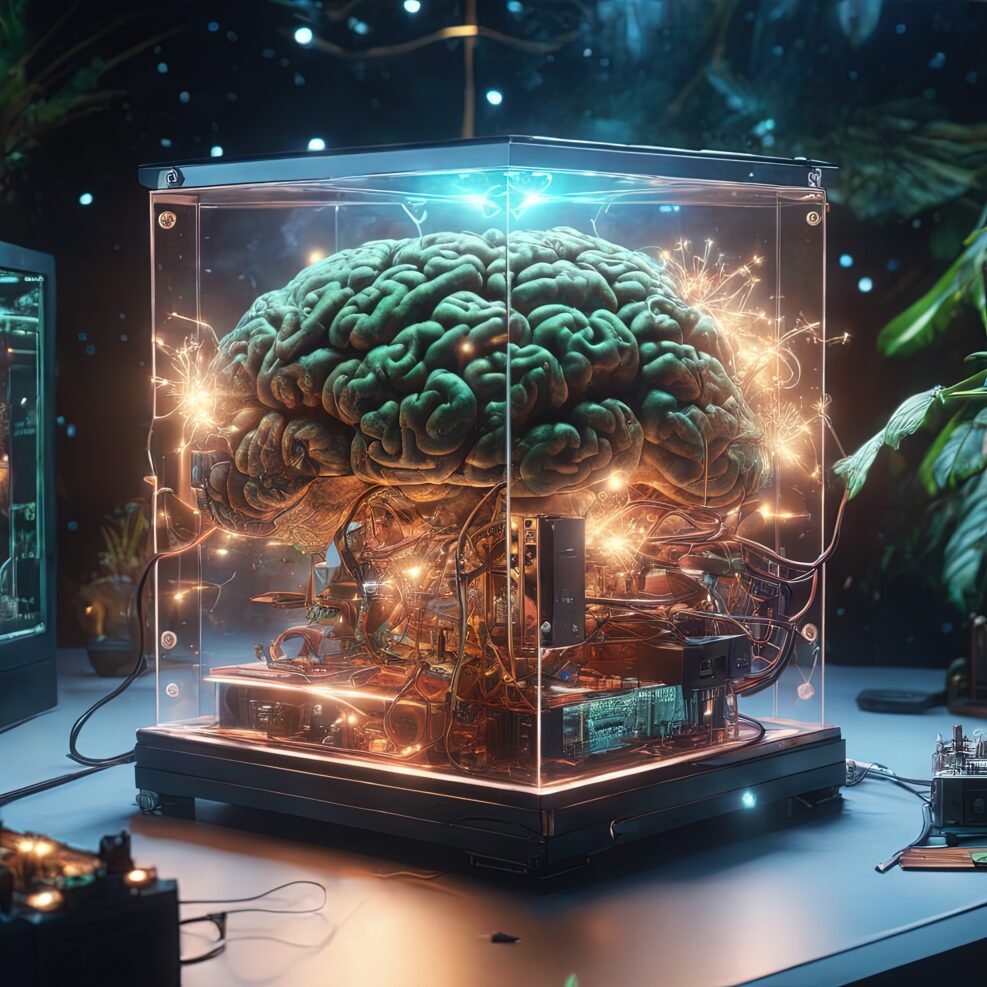
TagC. S. Lewis


John Lennox: Transhumanism Versus Traditional Humans
In the second part of his bonus feature for Science Uprising, Oxford mathematician Lennox compares transhumanism with traditional claims to transcend humanityIn the second part of Oxford mathematician John Lennox’s bonus interview for the Science Uprising series, “John Lennox on the Transhumanist Claim AI Will Turn Humans into Gods” (October 17, 2022), Lennox talks about claims that we will merge with computers (artificial intelligence) to achieve immortality. How plausible is that? Lennox is the author of 2084:: Artificial Intelligence and the Future of Humanity (2020). A partial transcript and notes for the second half follow (the first half is here): The AI concept of transhumanism? (13:45) John Lennox: The origin of the word “transhumanism,” interestingly enough, is not secular at all. It wasn’t first used by a scientist but it was used in a translation of one of the books of Read More ›

Can the Future Reach Back and Affect the Past?
Researchers say that only elementary particles can really time travel but there is another way…If the future influenced the past, that would be retrocausality. As Victor Bhaura puts it, Retrocausality means that, when an experimenter chooses the measurement setting with which to measure a particle, that decision can influence the properties of that particle (or another one) in the past, even before the experimenter made their choice. In other words, a decision made in the present can influence something in the past. Victor Bhaura, “Retrocausality — Future Influences Past Information Before Occurrence Of An Event” at Medium (June 8, 2022) Bhaura reminds us of a limerick called “Relativity” from 1923: There was a young lady named BrightWhose speed was far faster than light;She set out one dayIn a relative wayAnd returned on the previous Read More ›

Do Any Dogs Go To Heaven? If So, Why?
Neuroscientist Christof Koch was troubled as a child by the Catholic tradition that dogs like his beloved Purzel did not go to heavenIn recent articles, we’ve discussed well-known neuroscientist Christof Koch’s Integrated Information Theory (IIT) of consciousness which, as he acknowledges, takes a panpsychist (everything is conscious to some degree) approach to the mind. He has explained his reasoning at MIT Press Reader: Materialists must see human consciousness as an illusion — but then whose illusion is it? Panpsychism allows humans to have actual consciousness but, he says, “experience may not even be restricted to biological entities but might extend to non-evolved physical systems previously assumed to be mindless — a pleasing and parsimonious conclusion about the makeup of the universe.” His perspective is gaining popularity in science. One, perhaps unexpected, factor that he mentions as shaping his overall approach was youthful Read More ›

Is Real-World Space Travel Just Too Daunting for ET?
That’s the Percolation Hypothesis as to why we don’t make contact with aliens. They can’t overcome the laws of physics, any more than we canLast week we looked at another reason that has been advanced, as to why we do not see extraterrestrials except at the movies. Science writer Matt Williams has been looking at the reasons (see the links below.) Last Saturday, we looked at the possibility that Earth is unusual in that it is a rocky planet whose intelligent inhabitants live on the surface. Many rocky planets and moons with icy surfaces may have interior oceans that harbor life.: In that case, intelligent life may not think of space exploration. Another hypothesis that Williams has examined is the Percolation Theory Hypothesis, that there are limits imposed by the laws of physics as to what intelligent life forms can do by way of Read More ›

Why Oxford’s John Lennox Wrote a Book on AI Promises and Threats
His book 2084 leans on George Orwell’s 1984 but takes its inspiration from C. S. Lewis’s That Hideous StrengthRecently, Walter Bradley Center director Robert J. Marks interviewed Oxford mathematician John Lennox on his latest book 2084: Artificial Intelligence and the Future of Humanity (2020). He focused on why Lennox chose that theme and how far we have caught up with George Orwell’s 1984. Here are some excerpts from the combined interviews in “John Lennox on Artificial Intelligence and Humanity”: https://episodes.castos.com/mindmatters/Mind-Matters-123-John-Lennox.mp3 A partial transcript follows, along with highlights, Show Notes, and Resources: Robert J. Marks (starting at roughly 1:40 min): Many of Orwell’s predictions about communism were proven. So what will be the effects of AI a century later in the year 2084? Replacing George Orwell is Dr. John Lennox who has written 2084: Artificial Intelligence and the Future Read More ›

Bingecast: Walter Bradley on Near-Death Experiences
Those who’ve survived near-death experiences often describe an otherworldly journey. Can near-death experiences shed light on the mind/body problem? Robert J. Marks discusses near-death experiences and the mind/body problem with Dr. Walter Bradley. Show Notes Additional Resources

Walter Bradley: Is Your Body an Instrument of Your Mind?
Are we simply matter and chemical reactions or are our minds separate from our bodies? Robert J. Marks discusses the mind/body problem with Dr. Walter Bradley. Show Notes 00:34 | Introducing Dr. Walter Bradley, Emeritus Distinguished Professor at Baylor University 01:01 | Beliefs and objectivity 04:00 | A priori assumptions 04:36 | What is the mind/body problem? 05:45 | The Read More ›

Did Consciousness Evolve to Find Love?
It’s an attractive idea but it comes with a hidden price tagIf consciousness is a mere tool of human sexual selection, it is mere plumage, a pretty enticement, of no meaning or import otherwise. But then what becomes of Dr. Graziano’s own intellectual labors?
Read More ›